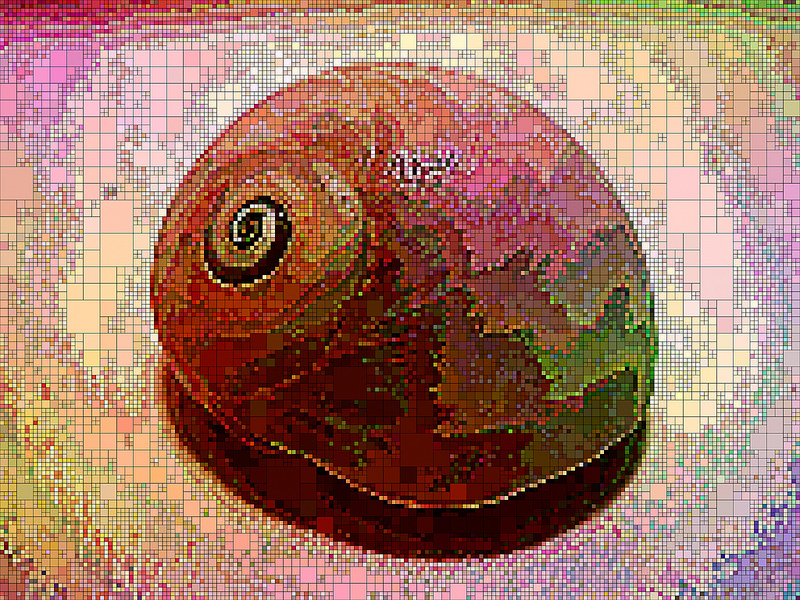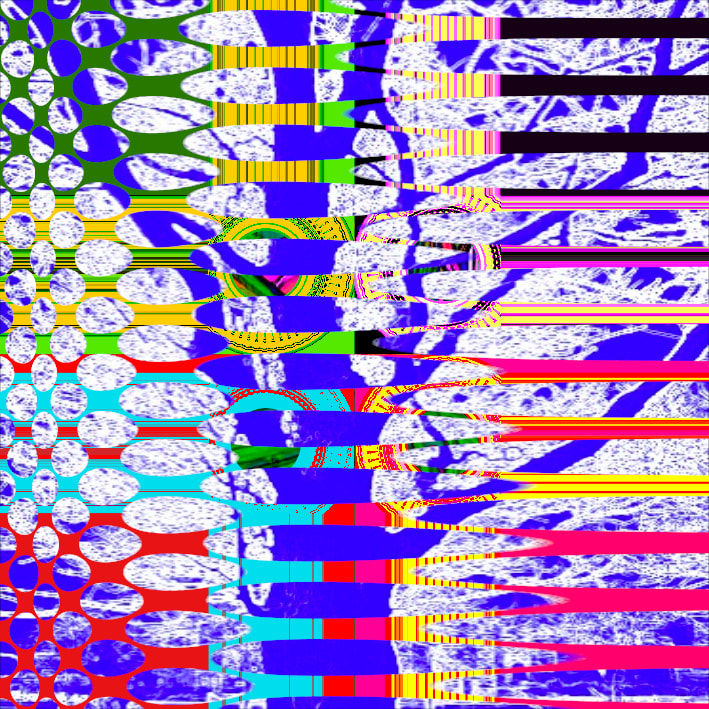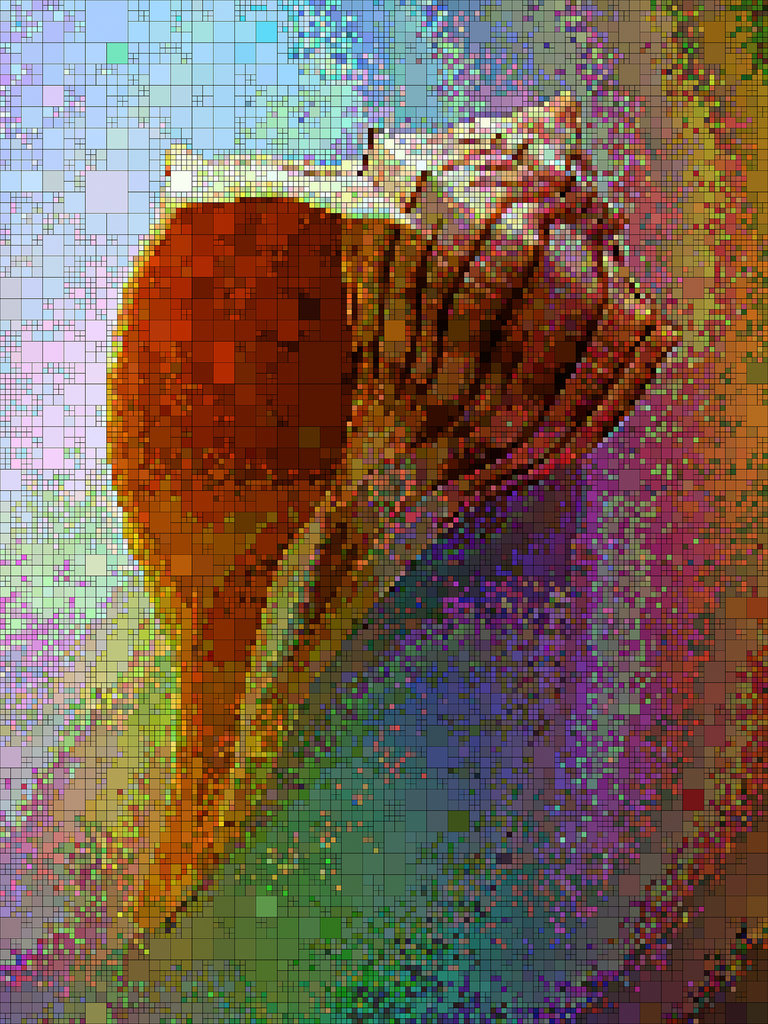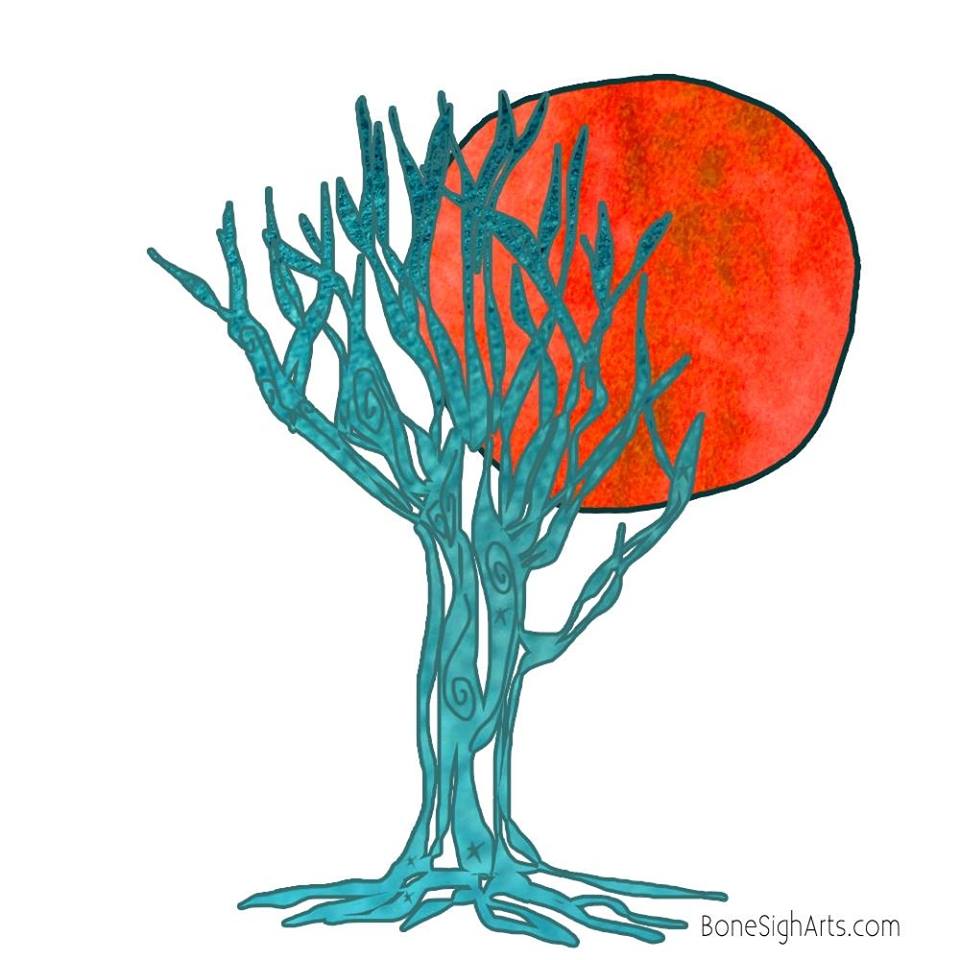The Six People in the World With Perfect Parents
and other misfortunes that get in the way of love
Reflections on Self-Care and Hospitality of Heart
from Elizabeth Bouvier-Fitzgerald, Terry St. Cloud, and Others
"She could never go back and make some of the details pretty.
All she could do was move forward and make the whole beautiful."
-Terri St. Cloud
"Be yourself today. Just be it. Without explanations or definitions.
Take notice of the person you are."
- Terry Bookman
Take notice of the person you are."
- Terry Bookman
"There are about 6 people on the planet who’ve received
the gift of ‘perfect’ parents. They’re nice in the same way
vanilla ice cream is nice."
- Elizabeth Bouvier-Fitzgerald
the gift of ‘perfect’ parents. They’re nice in the same way
vanilla ice cream is nice."
- Elizabeth Bouvier-Fitzgerald
|
|
|
more from Elizabeth Bouvier-Fitzgerald
Get Over the Illusion of Perfect ParentsThere are about 6 people on the planet who’ve received the gift of ‘perfect’ parents. They’re nice in the same way vanilla ice cream is nice. I’m guessing half of them are related to Social Norm. The rest of us are clamoring for worth by taking those pathetic Facebook quizzes that morph our faces into airbrushed, pseudo-super models or destroying our selves into living expressions of abstract pain through addictions to drugs, achievement, martyrdom or non-profits. It’s all basically the same thing. Look how devoted I am! Look how fat, skinny, rich, poor, kind, mean, fantastical, different, vintage, terrified, burdened, alive with pleasure. No Need to Re-Do YourselfDistinguished ‘experts’ have written all kinds of books telling us how bad we are. They describe, in graphic detail, all the things we do wrong; how we’re mean, selfish, sad, greedy, pathological, doomed failures. Some use humor in sarcastic attempts to help us laugh at our hurtful habits or choices we make that, in thier special opinions, are ruining the world. They might use science or religion to condemn our defaulted choices, usually from a platform of privilege, like having eye sight, money or being flawless, followed by attempts to guilt or shame us into making choices they deem as better. Turn vegan. Recycle. Be a badass. Find your purpose. Organize your sock drawer. Don’t take it personally, but take thier advice. And that might be the problem. Deep down maybe they feel just as worthless, frustrated, insecure and invisible as the rest of us. Forget Orders of RankThe world is one giant, extended family. Like every family we each have different roles, responsibilities, micro-cultures and for some unknown reason, order of rank. Love, truth, peace, freedom, justice are nice ideas but so far it’s just a hashtag. None of us would be here without a mother and father, so parents are supposed to hold the most authority leaving children the choice to be either cute, funny, attractive, helpful, productive, obedient, impressive or hot enough messes that we ensure getting at least some of our parents attention because we can’t all be Marsha...Sadly the competition doesn’t at the dinner table. Outside the door of every home, if you have one, is a whole other order of rank established first according to who is cute, funny, attractive, helpful, productive, obedient, impressive or hot enough messes to get someone to pay attention to us, usually in ways that cause more hurt. On top of that are other orders of rank assigning worth according to skin color, country of origin, income, political party, sports team, gender, religious belief, hairstyle and whether or not we can walk, talk, see, read, write or speak. |
Take Off the Hallmark GlassesIt’s both easier and more difficult to see and understand a problem that isn’t ours which is why we’re all great couch critics. We have perfect solutions for strangers but avoid calling that one person because we don’t know what to say when they bring up that uncomfortable situation. * From Elizabeth's Blog Born in Providence:
https://borninprovidence.com/2018/03/13/nothing-personal/ https://borninprovidence.com/2018/03/18/i-wonder/ |
Taking Care of Yourself
by Jay McDaniel
The Fourfold
The Chinese tell us that we can enjoy four kinds of beauty: (1) beauty in our relations with other people, (2) beauty in our relations with the natural world, (3) beauty in our relations with heaven, and (4) beauty in our relations with ourselves.
Let's call this the fourfold. If we think of love as a kind of beauty, then the idea is that we love all four realities: people, nature, heaven, and ourselves.
In Western Christianity there has been an emphasis on loving other people and heaven, and sometimes (but not enough) on the earth and other animals. However, sometimes beauty in our relations with ourselves has been neglected. We've been taught to love our neighbors as we love ourselves, but somehow we get the feeling that we are not really supposed to love ourselves. We even think of Jesus as worthy of our emulation because he gave his life for others at the expense of caring for himself.
Did he love heaven? Yes. Did he love other people? Yes. Did he love the lilies of the field? Yes. Did he love himself? Not sure.
Someone might add: "Well he didn't need to love himself because, after all, he was God." And someone else, deeply steeped in a gospel of self-sacrificial love, might add: "And even God doesn't really love himself, because he's all about loving others." They might even quote the Bible and say that God, like Jesus, is all about self-emptying (Philipians 2:7). Even in God, so it would seem, the fourth kind of love emphasized by the Chinese -- love of self -- would be a sin. It would be selfish of God to seek pleasure or to love himself. God is all about others.
Process theology disagrees with this way of thinking. In process theology even the Soul of the universe seeks satisfaction and has needs. It would be unnatural for heaven to love the world but deny itself. Heaven loves heaven, too.
Perhaps this is what more orthodox Christians are getting at when they speak of God as a Trinity. Perhaps they are saying that there is self-love even in heaven. Three men, three women, some men and some women. Some transgender? All transgender? Who cares? It's the principle that counts. There's a community and there's individuality. It's almost Buddhist. Even in divinity there is a community of inter-being amid which differences are not collapsed. Even in the Trinity the divine persons can say "I."
For those of us who think it is a bit patriarchal to over-emphasize self-sacrificial love and deny self-love this kind of trinity-thinking is not a bad idea. Even a deeply feminist idea. After all it is primarily men in power, not women under subjugation, who overemphasized solitude and simultaneously been hounded by it, thereby promulgating the gospel of self-sacrificial love. Get over it! Let there be persons-in-community and community-in-persons.
Was Jesus full of himself?
Was Jesus a trinitarian? It is quite doubtful. He was deeply and beautifully Jewish. He prayed to his Abba, not to himself.
One thing is pretty clear. Jesus was a powerful dude and had a fairly high opinion of himself. Yes, according to the stories, Jesus often subordinated his personal desires for the well-being of others and the will of heaven. He comforted the afflicted but also afflicted the comfortable. He was pretty tough on the patriarchs, too, at least sometimes. He believed that people in power - mostly if not all male -- should relinquish their impulse for power and walk with others in non-hierarchical ways. Jesus was pushy, albeit in a non-coercive way. He spoke truth to power.
But it seems like he did so from a position of inner strength and self-confidence, not out of a fear of being judged negatively by others and perhaps (though he wavered on this) not even out of a fear of being killed by them. He spoke with authority, forgiving others in the name of heaven and challenging others to do the same. You get the feeling that even if he didn't think they were forgiven by heaven, he would have forgiven them anyway. In a way he wasfull of himself in a constructive way or, as the tradition might say, he was full of divinity. And if he happens to have believed he was a messiah or suffering servant whose mission was to bring about a community of love on earth -- well, that takes a little audacity. That's chutzpah.
It's hard to picture Jesus as as a doormat or a handmaiden. He was no namby-pamby. Maybe a smarty-pants but not exactly weak or insipid or timid. He could say "I."
I am Somebody
What can be learned from Jesus? Maybe two things: one from his self-sacrificial side and one from his self-affirming side.
First, sometimes in life we do indeed need to subordinate personal desires for the well-being of others. There's nothing supernatural about this but lots that is beautiful. If you are a parent and you wake up in the middle of the night to take care of your crying, four year old daughter, you are sacrificing a personal desire for sleep in order to take care of someone different from you -- and not just an extension of yourself -- whom you love. You wouldn't have it any other way. You love your daughter more than you love your sleep.
The importance of this message goes further than the family. We live in a society of narcissism in which egotism reigns supreme and the other three members of the fourfold are neglected. Too often we love ourselves but not other people or the earth or heaven. We lack a sense of the common good of the our communities, our society, and our planet. Injunctions to self-sacrificial love can be very healthy, if the recipients happen to be people who have made gods of their own personal preferences. We are persons-in-community and there is community in our persons.
But self-sacrifice is a viable option only if you have a self to sacrifice in the first place. By having a self I do not mean ego-attachment but I do mean ego-affirmation. It is not enough for us to say You are Somebody. We must be able to say I am Somebody, too. This is the second thing we learn from Jesus.
Indeed, if you happen to be in a position of powerlessness and debilitating vulnerability, you might even need to say that we carry just a small bit of divinity in yourself. Or perhaps a whole lot of it. You might even need to say, along with Terri St. Cloud, that you carry all that you really need inside yourself. Only then can you assert yourself and speak with the authority of love. Only then can you move past the ugliness of the past and make the whole more beautiful.
Christians like to speak truth to power in the name of Jesus. Well this is good and fine, but what about in the name of Terri? Or Terrence? Or Miriam? Or Meijun? Or Muhammad? Or the name of countless people in our world who, for one reason or another, have been told that they cannot speak with authority because only some else -- only a lord or the Lord -- has the power of authentic speech.
What about the people who can say to their authorities "You are somebody" but who cannot say "I am somebody, too." For some people in some circumstances the acquisition of an ego is a grand achievement, not a sin, and the sin lies in those who deny them their ego.
From the video below it seems like Terri St. Cloud knows a bit about this. Some people find themselves in brambles, entangled in thorns from which no release is possible. And yet there is a kind of Light shining through the entanglement, within them but also more than us, and it beckons them beyond the brambles into a clearing. This Light helps us - helps us -- name the thorns, some of our own making and some forced upon us. In the naming a release occurs, an opening emerges. We walk into a clearing that is spacious.
God is not simply an Open Space but also a gentle breeze that blows in the minds and hearts of all people, refreshing them and inviting them into whatever love, whatever beauty, they - we -- can find, in the circumstances of our lives. Love of heaven, love of earth, love of other people, love of ourselves.
Christians speak of this Breathing as the Spirit. Jesus trusted in this Spirit. Terri St. Cloud seems to trust in it, too. It is not all-powerful but it is deeply effective. It cannot make the details of the past pretty, but it can help us step forward and make the whole beautiful.
This Breathing is an animating lure by which the universe has been called into the creation of its own many forms of beauty: atoms and molecules, stars and galaxies, plants and animals, hills and rivers. The universe listened.
Consider the lilies of the field. They flower forth in their own splendor. They can say "I" as well as "You." Whitehead says that if you look very carefully at any given flower, any given lily pad, any given person, you can see it saying I am Somebody, I make a Difference in the universe. The rocks and trees are doing it, too. All things everywhere at all times are giving expression to themselves, taking their place in the wider horizons of a universe whose very unity is the Soul of the universe.
If flowers and lily pads can affirm themselves, can't we, too? Isn't it our calling, not only to love the heaven and earth, other people and other animals. Isn't it our calling to love ourselves, too? Wouldn't that be pleasurable even for the Soul of the universe, who invites us to take care of ourselves as well as our neighbors. Can you imagine the happiness the Soul must feel when we move forward and make things whole, ourselves included? Almost like a mother welcoming home a prodigal daughter who had forgotten to love herself.
-- Jay McDaniel
The Chinese tell us that we can enjoy four kinds of beauty: (1) beauty in our relations with other people, (2) beauty in our relations with the natural world, (3) beauty in our relations with heaven, and (4) beauty in our relations with ourselves.
Let's call this the fourfold. If we think of love as a kind of beauty, then the idea is that we love all four realities: people, nature, heaven, and ourselves.
In Western Christianity there has been an emphasis on loving other people and heaven, and sometimes (but not enough) on the earth and other animals. However, sometimes beauty in our relations with ourselves has been neglected. We've been taught to love our neighbors as we love ourselves, but somehow we get the feeling that we are not really supposed to love ourselves. We even think of Jesus as worthy of our emulation because he gave his life for others at the expense of caring for himself.
Did he love heaven? Yes. Did he love other people? Yes. Did he love the lilies of the field? Yes. Did he love himself? Not sure.
Someone might add: "Well he didn't need to love himself because, after all, he was God." And someone else, deeply steeped in a gospel of self-sacrificial love, might add: "And even God doesn't really love himself, because he's all about loving others." They might even quote the Bible and say that God, like Jesus, is all about self-emptying (Philipians 2:7). Even in God, so it would seem, the fourth kind of love emphasized by the Chinese -- love of self -- would be a sin. It would be selfish of God to seek pleasure or to love himself. God is all about others.
Process theology disagrees with this way of thinking. In process theology even the Soul of the universe seeks satisfaction and has needs. It would be unnatural for heaven to love the world but deny itself. Heaven loves heaven, too.
Perhaps this is what more orthodox Christians are getting at when they speak of God as a Trinity. Perhaps they are saying that there is self-love even in heaven. Three men, three women, some men and some women. Some transgender? All transgender? Who cares? It's the principle that counts. There's a community and there's individuality. It's almost Buddhist. Even in divinity there is a community of inter-being amid which differences are not collapsed. Even in the Trinity the divine persons can say "I."
For those of us who think it is a bit patriarchal to over-emphasize self-sacrificial love and deny self-love this kind of trinity-thinking is not a bad idea. Even a deeply feminist idea. After all it is primarily men in power, not women under subjugation, who overemphasized solitude and simultaneously been hounded by it, thereby promulgating the gospel of self-sacrificial love. Get over it! Let there be persons-in-community and community-in-persons.
Was Jesus full of himself?
Was Jesus a trinitarian? It is quite doubtful. He was deeply and beautifully Jewish. He prayed to his Abba, not to himself.
One thing is pretty clear. Jesus was a powerful dude and had a fairly high opinion of himself. Yes, according to the stories, Jesus often subordinated his personal desires for the well-being of others and the will of heaven. He comforted the afflicted but also afflicted the comfortable. He was pretty tough on the patriarchs, too, at least sometimes. He believed that people in power - mostly if not all male -- should relinquish their impulse for power and walk with others in non-hierarchical ways. Jesus was pushy, albeit in a non-coercive way. He spoke truth to power.
But it seems like he did so from a position of inner strength and self-confidence, not out of a fear of being judged negatively by others and perhaps (though he wavered on this) not even out of a fear of being killed by them. He spoke with authority, forgiving others in the name of heaven and challenging others to do the same. You get the feeling that even if he didn't think they were forgiven by heaven, he would have forgiven them anyway. In a way he wasfull of himself in a constructive way or, as the tradition might say, he was full of divinity. And if he happens to have believed he was a messiah or suffering servant whose mission was to bring about a community of love on earth -- well, that takes a little audacity. That's chutzpah.
It's hard to picture Jesus as as a doormat or a handmaiden. He was no namby-pamby. Maybe a smarty-pants but not exactly weak or insipid or timid. He could say "I."
I am Somebody
What can be learned from Jesus? Maybe two things: one from his self-sacrificial side and one from his self-affirming side.
First, sometimes in life we do indeed need to subordinate personal desires for the well-being of others. There's nothing supernatural about this but lots that is beautiful. If you are a parent and you wake up in the middle of the night to take care of your crying, four year old daughter, you are sacrificing a personal desire for sleep in order to take care of someone different from you -- and not just an extension of yourself -- whom you love. You wouldn't have it any other way. You love your daughter more than you love your sleep.
The importance of this message goes further than the family. We live in a society of narcissism in which egotism reigns supreme and the other three members of the fourfold are neglected. Too often we love ourselves but not other people or the earth or heaven. We lack a sense of the common good of the our communities, our society, and our planet. Injunctions to self-sacrificial love can be very healthy, if the recipients happen to be people who have made gods of their own personal preferences. We are persons-in-community and there is community in our persons.
But self-sacrifice is a viable option only if you have a self to sacrifice in the first place. By having a self I do not mean ego-attachment but I do mean ego-affirmation. It is not enough for us to say You are Somebody. We must be able to say I am Somebody, too. This is the second thing we learn from Jesus.
Indeed, if you happen to be in a position of powerlessness and debilitating vulnerability, you might even need to say that we carry just a small bit of divinity in yourself. Or perhaps a whole lot of it. You might even need to say, along with Terri St. Cloud, that you carry all that you really need inside yourself. Only then can you assert yourself and speak with the authority of love. Only then can you move past the ugliness of the past and make the whole more beautiful.
Christians like to speak truth to power in the name of Jesus. Well this is good and fine, but what about in the name of Terri? Or Terrence? Or Miriam? Or Meijun? Or Muhammad? Or the name of countless people in our world who, for one reason or another, have been told that they cannot speak with authority because only some else -- only a lord or the Lord -- has the power of authentic speech.
What about the people who can say to their authorities "You are somebody" but who cannot say "I am somebody, too." For some people in some circumstances the acquisition of an ego is a grand achievement, not a sin, and the sin lies in those who deny them their ego.
From the video below it seems like Terri St. Cloud knows a bit about this. Some people find themselves in brambles, entangled in thorns from which no release is possible. And yet there is a kind of Light shining through the entanglement, within them but also more than us, and it beckons them beyond the brambles into a clearing. This Light helps us - helps us -- name the thorns, some of our own making and some forced upon us. In the naming a release occurs, an opening emerges. We walk into a clearing that is spacious.
God is not simply an Open Space but also a gentle breeze that blows in the minds and hearts of all people, refreshing them and inviting them into whatever love, whatever beauty, they - we -- can find, in the circumstances of our lives. Love of heaven, love of earth, love of other people, love of ourselves.
Christians speak of this Breathing as the Spirit. Jesus trusted in this Spirit. Terri St. Cloud seems to trust in it, too. It is not all-powerful but it is deeply effective. It cannot make the details of the past pretty, but it can help us step forward and make the whole beautiful.
This Breathing is an animating lure by which the universe has been called into the creation of its own many forms of beauty: atoms and molecules, stars and galaxies, plants and animals, hills and rivers. The universe listened.
Consider the lilies of the field. They flower forth in their own splendor. They can say "I" as well as "You." Whitehead says that if you look very carefully at any given flower, any given lily pad, any given person, you can see it saying I am Somebody, I make a Difference in the universe. The rocks and trees are doing it, too. All things everywhere at all times are giving expression to themselves, taking their place in the wider horizons of a universe whose very unity is the Soul of the universe.
If flowers and lily pads can affirm themselves, can't we, too? Isn't it our calling, not only to love the heaven and earth, other people and other animals. Isn't it our calling to love ourselves, too? Wouldn't that be pleasurable even for the Soul of the universe, who invites us to take care of ourselves as well as our neighbors. Can you imagine the happiness the Soul must feel when we move forward and make things whole, ourselves included? Almost like a mother welcoming home a prodigal daughter who had forgotten to love herself.
-- Jay McDaniel









